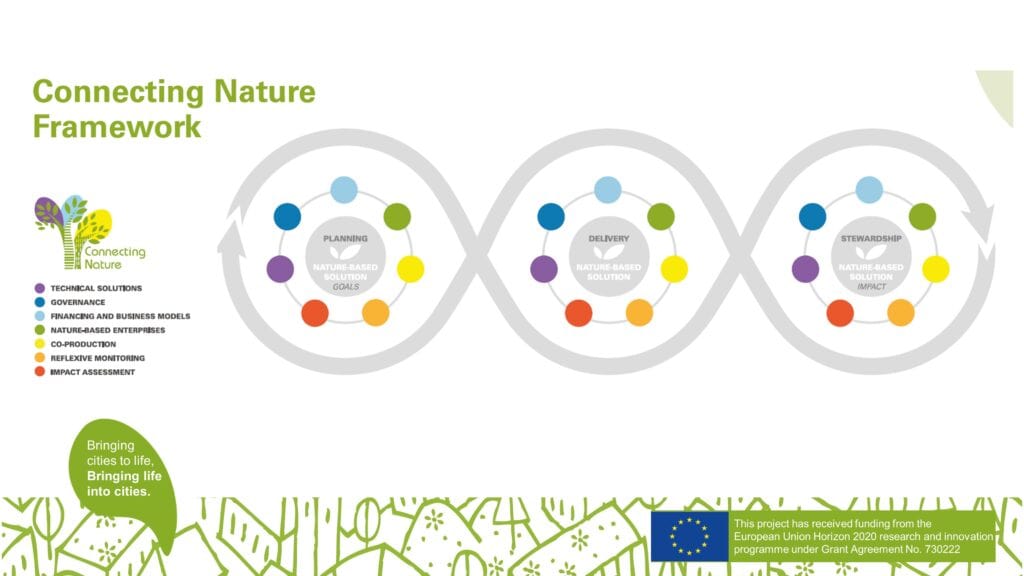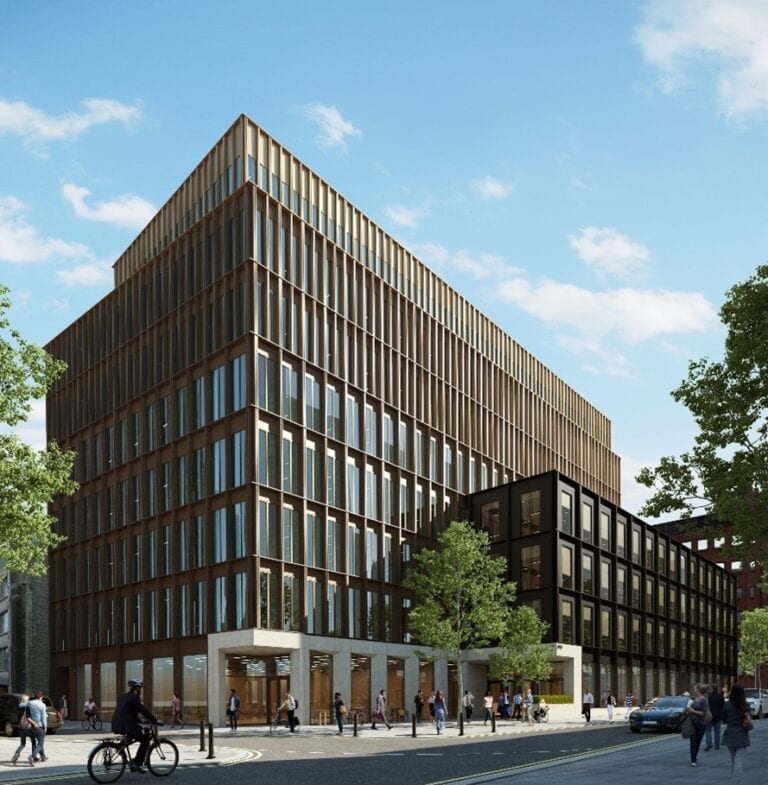A process tool for implementation of NBS at scale

Problem Addressed
This solution was sourced in response to UKGBC’s Innovation Challenge: “How can communities and local authorities implement, maintain, and assess the impact of nature-based solutions to enhance climate resilience?”
Designing and implementing nature-based solutions (NBS) on a scale that delivers economic, environmental and social co-benefits, builds resilience and benefits biodiversity is complex with many different issues to consider: What is the best solution for the area? Who will manage it? How will it be financed? Who needs to be involved in the design, implementation and maintenance? How to measure economic, environmental and social impact? Will it support innovation and generate jobs? How to manage change? Even identifying where to start can often be a challenge.
Verification & Case Study
One of the elements comprises of ‘Reflexive Monitoring’, this enables users to evaluate the effectiveness of their actions and the progress made towards their aims. Reflexive Monitoring focuses on identifying critical turning points: key aspects of progress that correlated with significant changes in relation to NBS mainstreaming, and represent key learning outcomes, when viewed in hindsight, that can be fed back iteratively into experiential learning.
Case Study
The Framework is being used by a number of cities across Europe, and beyond, to mainstream their implementation of NBS. Case studies of these activities are being uploaded to Oppla. A specific example of this is the Stiemer Vallei exemplar in Genk, Belgium.
This page presents data, evidence, and solutions that are provided by our partners and members and should therefore not be attributed to UKGBC. While we showcase these solutions for inspiration, to build consensus, and create momentum for climate action, UKGBC does not offer commercial endorsement of individual solutions. If you would like to quote something from this page, or more information, please contact our Communications team at media@ukgbc.org.
Related
Planters enhancing biodiversity

A process tool for implementation of NBS at scale

Enhancing Nature

The Joe’s Blooms Biodiversity Net Gain Tool

